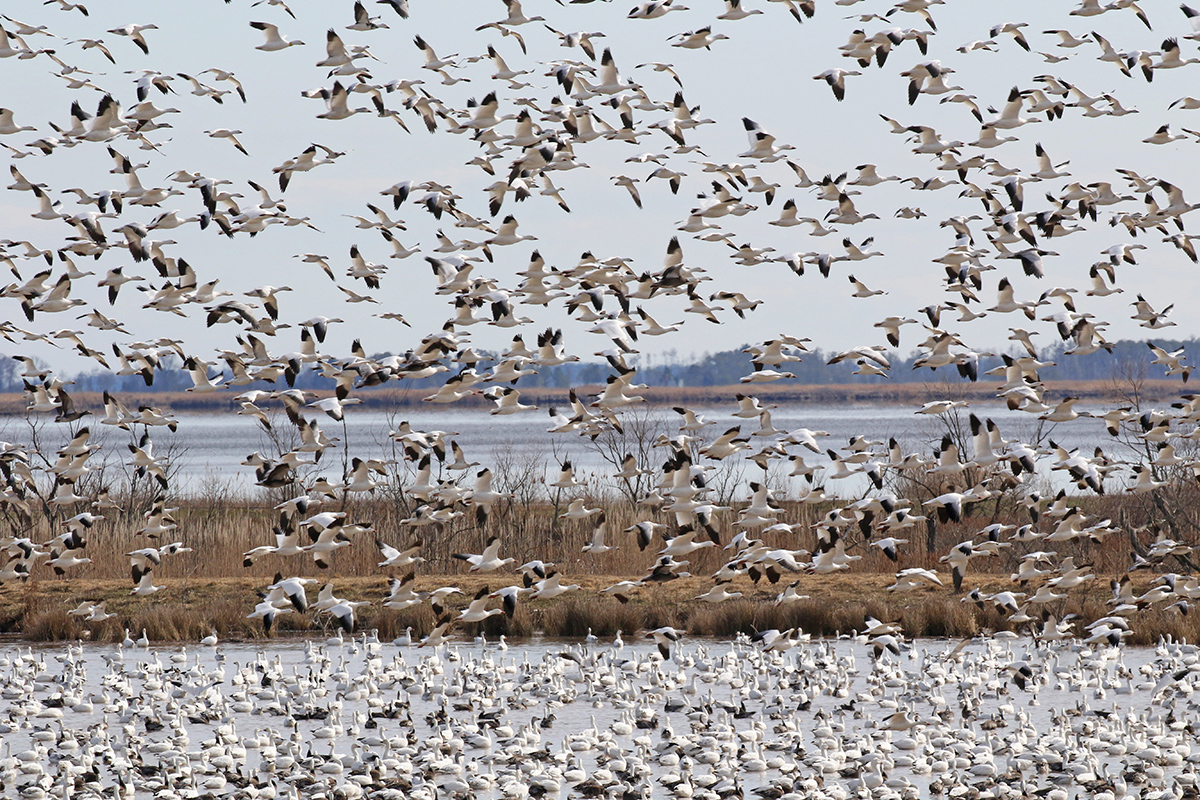This special issue of PERC Reports explores the West’s water crisis and how markets can address today’s shortages. Read the full issue.

Conservation should unite. In September, PERC launched the Conservation Law and Policy Center to establish a direct pipeline from its research and idea generation to legal and policy reform. Too often, regulations penalize conservation rather than reward it. The center advances reforms that respect property rights, expand incentives for voluntary stewardship, and empower people to improve conservation through markets. Led by PERC Vice President of Law and Policy Jonathan Wood and Policy Director Hannah Downey, the center will coordinate PERC’s legal research, policy outreach and education, amicus briefs, agency comments, and related work to help put market solutions to conservation into action.

Saving water by cutting taxes? Several western states use property taxes to subsidize municipal water, rather than having consumers pay usage rates that reflect the full price of water. The approach discourages conservation and almost guarantees overuse. A new report by the Utah Rivers Council calls for a change as the West faces severe drought and the Great Salt Lake dwindles. The report estimates that Utah, which has some of the highest rates of municipal water use per person in the nation, could lower demand by one-quarter if it stopped subsidizing water for consumers through property taxes.

Dude, where’s my parking revenue? Great Smoky Mountains National Park has announced a novel initiative to raise dedicated revenue for the park. Starting in March 2023, all visitors will need a parking pass, priced at $5 per day, $15 per week, or $40 per year. A new parking scheme may not seem like much of an innovation, but it is in the nation’s most visited park, where state law prohibits charging the entry fees required at many other national parks. The program will generate much-needed revenue given that visits have jumped by 57 percent over the past decade, yet the park’s budget has flatlined. All of the funds collected will be retained in the Smokies to protect park assets, make needed repairs, and enhance the visitor experience.

Contracting conservation. A new Maryland law is clearing the path for private investment to improve the environment. The Conservation Finance Act allows the state to contract for environmental outcomes, such as the restoration of habitat, the same way it does for traditional infrastructure projects. The law not only engages businesses in the state’s conservation efforts but also harnesses the power of environmentally conscious investors who are increasingly backing up their concern for the planet with targeted investments. Moreover, the act establishes a commission to expedite permitting reviews, ensuring that bureaucratic processes do not unduly delay work that benefits fish, wildlife, and the climate.

Tracking water from space. For many western farmers, an affordable and precise way to measure their water use remains elusive. OpenET aims to change that by making satellite-based evapotranspiration data available to growers in 17 states from Texas to Washington. As water evaporates from vegetation into the atmosphere, plants cool. Thermal and optical sensors on satellites can measure that cooling effect, allowing OpenET to estimate water use down to the field level. The initiative, which uses publicly available data, is already helping bridge one of the biggest information gaps in water management in several places in the West.

Incentives matter. A 2021 state law in Utah could help explain a recent surge in child support payments. The law stipulates that anyone past due on child support by $2,500 or more cannot receive a hunting or fishing license. State Rep. Karianne Lisonbee, author of the bill, told NewsNation that she heard from constituents who “had noncustodial partners that were overdue on child support and going out and spending lots and lots of money hunting and fishing.” Last July, about 3,000 people were blocked from receiving licenses; 12 months later, nearly 500 of them had come into compliance.

Up in smoke. With policy moves like a 2035 ban on new gas-powered cars, California fashions itself as a leader in environmental progress. News from a recent UCLA study, then, makes for tough reading in the Golden State. Researchers found that the devastating wildfire season of 2020 emitted so much carbon that it wiped out 18 years of greenhouse gas reductions in the state. The authors noted that “decades of fire suppression and underinvestment in preventive measures such as mechanical clearing or prescribed burns” had exacerbated fire risk, a well-trodden topic at PERC.

Don’t fear the coral reefer? The Nature Conservancy has taken out a $2 million insurance policy for Hawaii’s coral reefs. The group is paying a $110,000 premium to insure reefs along the Hawaiian Islands against damages from severe storms through 2023. Payouts begin if wind speeds reach 50 knots. The money would be used to repair reefs by reattaching fractured fragments using cement and epoxy or growing new corals in a nursery. The group previously helped develop a similar policy for reefs off the coast of Mexico’s Yucatán Peninsula, resulting in the first-ever coral reef insurance payout in 2020 after Hurricane Delta battered the region.



